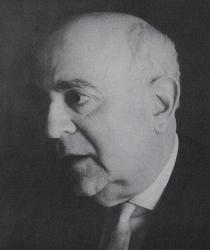Books about how people can overcome their own hardships
WHEN YOU read success stories, there always appears a sentence about hardships in one form or another: Life is a constant repetition of hardships that appear at every stage. As people strive to live and maintain a comfortable life, they realize that life is actually a series of struggles. Many Yonseians may be confused or anxious about their future careers; even if they have clear goals, they are not sure what is waiting ahead of them. Although students may already be highly educated, they still prepare for the national examination or work harder to accumulate more experience to make themselves more marketable. Despite all the obstacles that will need to be overcome, there is always hope. Like the old saying goes, every cloud has a silver lining. To all who need a little hope or inspiration, The Yonsei Annals recommends three books about people who surmount their own trials and limitations.
Minima Moralia, Theodor W. Adorno

Theodor W. Adorno is a representative scholar of France Cover (Frankfurter Schule) emphasizing the Aesthetics Theories and the Critical Theory in 1920s and onward. He was a well-educated intellectual and became a reputed sociologist, philosopher, and musicologist. However, at that time, the Nazi regime began the Holocaust, persecuting and murdering innocent Jews. Adorno, being Jewish, was forced to defect to the United States. Even if he failed to act between thoughts and practice and died miserably in concentrated fire, he had written the work Minima Moralia which is a philosophic confession of his wounded spirit due to the Nazi's suppression. Minima Moralia is composed of 153 short essays written with difficult dialectics used by Adorno. In the book, he wroted about his gained knowledge and thoughts that prevailed throughout his life. This included a variety of fields such as the exhausted life of citizens in capitalism, the attitude of intellectuals, the one truth, culture, philosophy, and so forth. Among these, the most noted section is where Adorno wrote about how people who are alienated day by day should live on. Adorno depicted the situation as, "most people kick against the pricks (i.e. have running battles with the authorities)" (aphorism 72, Second Harvest). People who are imposed to think relationships with others as empty formalities and eliminate them eventually maintain the least relationships. This creates greater distance between them and others, and causes them to become trapped in their own world. Based on Adorno's insights, he concluded that perfect thinking is impossible, so there is no successful life agreed upon everyone. To overcome hardships, he suggests discovering one's own impossibilities ― "Advice to intellectuals: don't let yourselves be represented. The fungibility of all accomplishments and human beings and the belief derived from this, that everyone should be able to do everything, prove in the midst of the existent to be a fetter. The egalitarian ideal of interchangeability [Vertretbarkeit: fungibility] is a fraud, if it is not supported by the principle of revocability and accountability to the "rank and file" [in English in original]" (aphorism 83, Vice President).
Pygmalion, George Bernard Shaw

After much trifles and uproar, Eliza is trained for six months to form her "Pygmalion." Throughout the course, she shows her desire and perseverance. Furthermore, she even maintains her own independent spirit with Higgins, who doesn't wish to admit that she is just another person like him. Eliza explains confidently, "you see, really and truly, apart from the things anyone can pick up (the dressing and the proper way of speaking, and so on), the difference between a lady and a flower girl is not how she behaves, but how she's treated. I shall always be a flower girl to Prof. Higgins, because he always treats me as a flower girl, and always will." Although Eliza was not born with a silver spoon in her mouth, she proves that not only can she learn to imitate the mannerisms and knowledge of the upper class, but she can also earn her independence. Her endless endeavor is a good example to people who are afraid of growing up or who do not make an effort to develop their future.
The Dream of a Ridiculous Man, Fyodor M. Dostoevsky
F. M. Dostoevsky is famous for his realistic depiction, which argues for pursuing the inner sides of humankind. The Dream of a Ridiculous Man is one of his short stories with this theme. This novel is about how a man disappointed with his society overcomes his depression. He is frustrated because he can't get along with other people including the woman he loves. The big city of St. Petersburg stripped him of any chance to live well. He calls himself "a ridiculous man", who does not have any desire for something, and thinks life is meaningless. He comes to a point where he considers death. However, he falls asleep accidentally and begins to dream. In the dream, he sees that people only indulge in material things and accomplishments and they are corrupted from his point of view. Moreover, he confronts his negative attributes and thinks he is the cause of all bad things.
From the dream, he suddenly realizes a great truth that there is way out of living in the world full of people who are evil. He gains hope and learns how to overcome adversities of life. "But how can I not believe: I have seen the truth, my mind didn't invent it, I saw it, saw it, and its living image has filled my soul forever. I have seen it in such complete wholeness that I am unable to believe it cannot exist among men. So then, how can I go astray? I will deviate of course, more than once even, and will perhaps speak in the words of others, but not for long: the living image of what I have seen will always be with me and will always correct and guide me." In the end, he decides to face his own hardships. In the real world where people don't always care about others and are only interested in their success, he finds the right path to take and forms his own identity.
* * *
There are many books and other sources dealing with how you can regain your energy and struggle to get back on your feet. Whether it's an inspirational quote or a self help book, the most important message is, do whatever it takes to overcome any obstacle in your way. Not only the three books mentioned above but also many biographies of celebrities and successful people show that they achieved their desired results because they found their own philosophy and developed themselves to overcome hardships rather than give up. Many Yonseians may still feel uncertain about the future. However, when you set goals in a calm and orderly way, they will be the silver lining of the cloud over your head.
The definition of Pygmalion
Pygmalion is a sculptor in ancient Greek mythology who fell in love with a statue he had carved. In psychology, the Pygmalion effect refers to the behavior of individuals who behave the way people expect.

